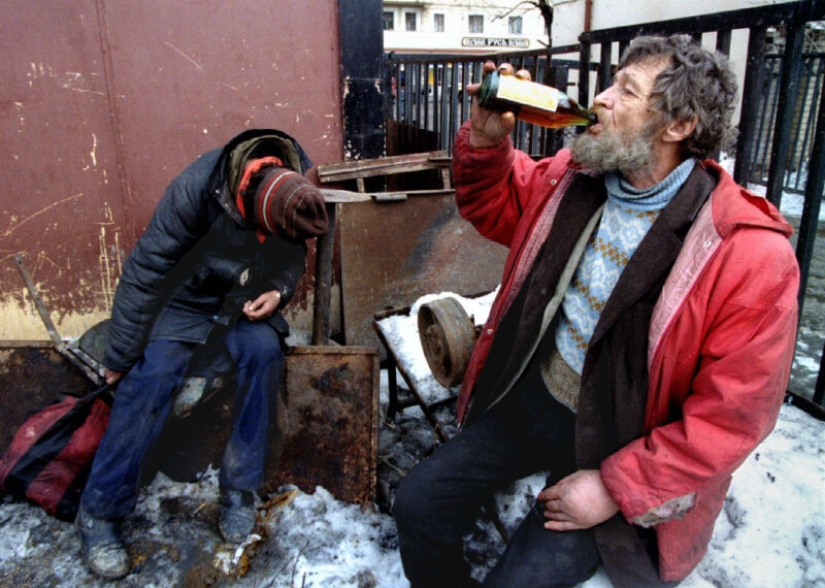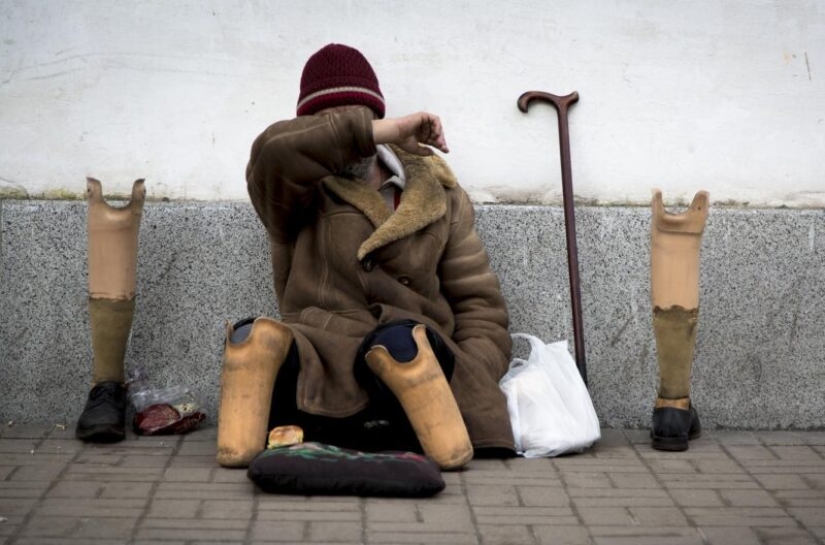Who is it right to call marginals and why is it not necessarily a bad thing
Categories: Society
By Pictolic https://pictolic.com/article/who-is-it-right-to-call-marginals-and-why-is-it-not-necessarily-a-bad-thing.htmlEveryone has probably heard the word "marginal". We perceive it as something negative and offensive. But this definition has nothing offensive or pronounced negative in its meaning. There are quite a lot of marginals around and you will be surprised to learn that your friends or even yourself belong to this group of people.

In our understanding, a marginal person is a person leading a self-destructive lifestyle, poor and marked with the stamp of degradation. But it is enough to look at the definition of this word to understand your mistake. The encyclopedia tells us that marginals are people who are in a borderline state between two or more social groups, systems, cultures. That is, they are asocial personalities, but not necessarily immoral and degraded.

Scientists claim that the first marginals in history were freed slaves. They left the community they were used to, but they could not quickly and painlessly join the new environment of free people for themselves. About the same thing is happening today with migrants who arrived from Africa and Asia to Europe – they feel like strangers and find it very difficult to find their place in a foreign land.
Marginals who cannot perform useful functions in society very often become sources of serious problems. They gather in groups and organize mass riots, go into crime or gradually "slide downhill" and descend, filling the void in their lives with alcohol and drugs.
At the same time, such people are often adequately received in other countries, providing housing and food. Marginals are not always grateful for this and often create serious problems for respectable citizens living nearby. But there are also harmless representatives of this group who live in their own world and adhere to a special philosophy of life, for example, downshifters.

A person does not always choose the status of a marginal for himself. Sometimes society does it for him, and an objective reason is not always needed for this. There are examples of marginalization based on sexual orientation, nationality, as well as private cases at school, university or at work. Most refuse to accept a person or a group of people different from him, and this is considered a violation of human rights.
There are cases when a person himself is aware of his marginality and its causes. In this case, he can leave everything as it is or return to a "normal" life, that is, accept the rules of the majority. Sometimes it works, and sometimes it doesn't - it all depends on the specific situation and on the person himself.
The term "lumpen", popular in Soviet times, was introduced by Karl Marx. In this group, the theorist of socialism included people leading an antisocial lifestyle – vagabonds, beggars, criminals. For many, lumpens and marginals are the same thing, but this is an erroneous opinion. A lumpen is a declassified element, a person without morals and often obsessed with vices.

A marginal person can be a lumpen, but this is an optional condition. What these categories of people have in common is that they fall out of a stable social structure. However, it should be recognized that the path from marginals to lumpens is much shorter than from other social groups.
To distinguish marginals from lumpens, it is necessary to consider the main signs of marginality. These include mobility associated with the lack of housing and attachments, psychological problems caused by the inability to find their place in society. Developing your own value system, which is often hostile to the existing society. Unfortunately, I must say that easy involvement in criminal activity is also one of the signs of marginality.
Marginality manifests itself for various reasons, so it is customary to distinguish several types of marginals. The most common type is political marginals who find themselves on the edge because of the actions of the leadership of their country. A good example is Cuba, where after Fidel Castro came to power, more than two million people turned out to be global outcasts. Bloody repressions and complete disenfranchisement in the country led to the fact that citizens began to have a negative attitude towards their state.

Another type of marginals is ethnic. These are people who, for some reason, found themselves in a foreign country, surrounded by representatives of another nationality. Today, this is a very common phenomenon, especially in Europe, where refugees from Africa and Asia have flooded in. These people are not ready to assimilate among the adopted population, which creates certain problems.
An ethnic marginal can also be a child born to parents of different nationalities and races. He may not be accepted by any ethnic community and in this case will be doomed to live on the very edge of society. Basically, this phenomenon is characteristic of underdeveloped countries, where prejudices and the influence of religious canons are strong.
It is worth mentioning religious marginals. These are people who profess their own, not too popular religions and cults and thus stand out from the general mass. Among the religious marginals, there are often individuals who are able to attract the masses. In this case, new cults and sects appear.

Social marginals have lost their place in society due to some shocks, for example, coups, crises and revolutions. As an example, we can cite the nobility of Russia, which was completely marginalized after the revolution of 1917, and failed to accept the values of a new, alien to them proletarian society. They were forced to emigrate, but they also remained marginalized in a foreign land.
Economic marginals are those who have been left without means of livelihood for some reason. These are people who have lost their jobs or do not want to work and therefore live at someone else's expense. They beg, live off state aid, or simply "sit on the neck" of a working family member or parents. Often ethyl personalities are satisfied with this way of life.

Biomarginals are a type of people who have no value for society due to ailments or physical disabilities. In civilized countries, they are taken care of, but if this does not happen, the disabled person is quickly marginalized. This category usually includes the disabled, chronically ill, elderly, HIV-infected, people with Down syndrome.
Strangely enough, marginals often make a significant contribution to the life of a society that has not accepted them. There are many creative and gifted people among them - musicians, artists, writers. Another positive side of marginality can be considered flexibility, lack of attachment to a place and people.

It is easier for a marginal person to go to another city and even to another country, more prosperous, where to start life anew and achieve success. Ethnic marginals living in countries with a culture alien to them often become owners of restaurants of national cuisine or shops of exotic goods.
Summing up, we can say that only artificially created marginality has a pronounced negative coloring. In this case, innocent people and entire nations sink to the very bottom and even die. The forced marginalization of Jews in Nazi Germany led to pogroms, hatred, and eventually to the Holocaust, which destroyed millions of lives.
Recent articles

It's high time to admit that this whole hipster idea has gone too far. The concept has become so popular that even restaurants have ...

There is a perception that people only use 10% of their brain potential. But the heroes of our review, apparently, found a way to ...

New Year's is a time to surprise and delight loved ones not only with gifts but also with a unique presentation of the holiday ...